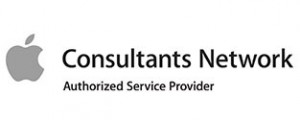Arguably, the whole world is aware of the global issues of data breaches, from Wikileaks to Yahoo. The ramifications of once private or encrypted information falling into the public sphere has implications for individuals and businesses around the world.

Trustwave, a digital security firm, has found that poor outsourcing decisions leads to at least two-thirds of data breaches. In 2013, the firm released a report linking third-party IT system providers or administrators to 63% of the 450 cases of global data breaches the company was investigating that year. The research points to weaknesses in third party IT support, maintenance and development that have been quickly exploited by computer hackers. This proves the need to make considered and researched decisions when choosing an IT service provider to outsource your business to.
Often times businesses fail to fully understand the price of security risks that could impact on their operations, and they aren’t stringent enough in considering how third party suppliers might handle their sensitive data. Instead many consider the most economical provider that can deliver on the bottom line, but this could cause long term issues down the road in terms of protecting digital information.
Many large Fortune 500 companies give consideration to digital security risks in their annual reports, but many companies fail to demonstrate this right down to the level of procurement and negotiation.
It is also rare that IT security providers and managers are included in negotiation talks when signing off on IT service outsourcing. Most conversations revolve around price and service level agreements (SLAs) and fail to encompass security concerns. This can be improved upon by establishing protection expectations and searching for third party proposals that give consideration to your concerns.
Asking critical questions is a great start, but it should be backed up with a full evaluation process that will properly collate information and confirm security claims in acknowledgement of your questions. This should be both backed up by paper-based evidence and conversations to ensure proper accordance to standards.
Cutting corners with an IT service provider may seem like a wise short term decision, but in the long run, data breaches could cost vast amounts of time and money in the future. Third party providers do offer the benefit of specialist knowledge and servicing to properly handle your IT solutions, but a certain level of trust should be managed between your provider and your organization. Educating yourself on potential weaknesses will help you establish a preferred mode of working with your provider. Looking for third party verification that your provider is both honest and well informed on security methods is essential.
If your organization deals with payments and card systems, your provider should be able to demonstrate evidence of PCI DSS (payment card industry data security standards) compliance by a Qualified Security Assessor (QSA). By understanding your risks and working to minimize breaches through smarter IT service provider selection you can help to safeguard your business from damaging data leaks in the long run.


